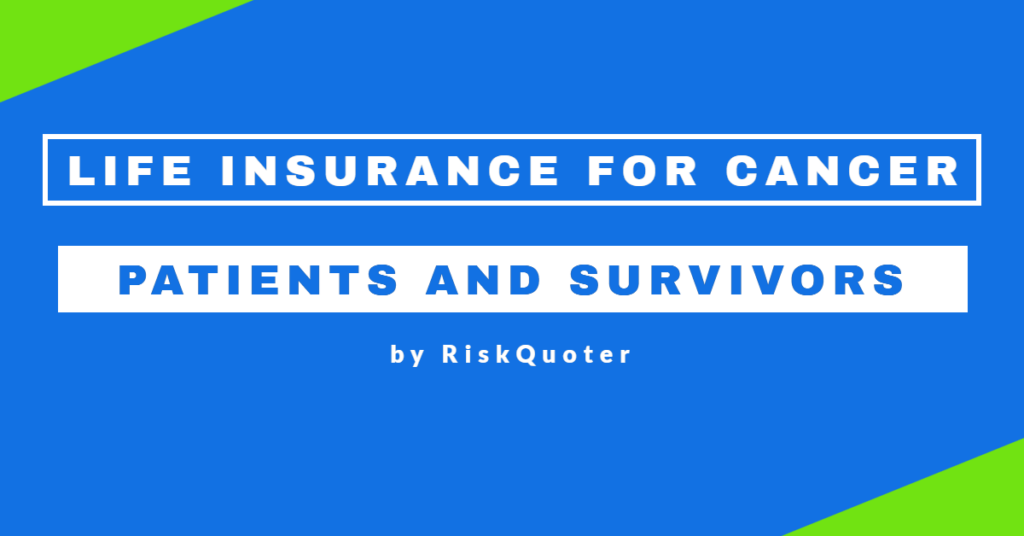Worried about getting life insurance after a cancer diagnosis? You’re not alone, but the good news is, it’s often possible.
This guide explains how to qualify for coverage based on your cancer type, stage, and treatment history, and provides you with information about the life insurance policies available and the best insurance companies to work with.
Frequently Asked Questions (FAQ)
The best company depends on the type, stage, treatment, recurrence, and time since treatment. Companies that do well with cancer histories include Prudential, Lincoln Financial, Mutual of Omaha, Principal, Protective Life, Banner Life, and others.
Yes, but indirectly. Tests like the Complete Blood Count (CBC) may indicate blood or immune system cancers. PSA tests may indicate that prostate cancer is present.
Depending on the type, you may be able to get life insurance in as little as 3 months for stage 1 melanoma, prostate, thyroid, and colon cancers
While most companies will postpone coverage if you have cancer, certain prostate cancers may still be insurable. Guaranteed issue coverage is available to individuals aged 45 and older.
Yes, life insurance typically covers death. As long as you disclose your medical history when purchasing life insurance, the company will pay the death claim.
Life Insurance Options by Cancer Type
Your type of cancer is the most crucial factor in underwriting. We’ve created detailed guides for each:
- Bladder Cancer Life Insurance
- Breast Cancer Life Insurance
- Cervical Cancer Life Insurance
- Colon Cancer Life Insurance
- Kidney Cancer Life Insurance
- Melanoma & Skin Cancer Life Insurance
- Prostate Cancer Life Insurance
- Testicular Cancer Life Insurance
- Throat Cancer Life Insurance
- Lymphoma – Hodgkin and Non-Hodgkin
- Leukemia
Each link explains what companies look for, standard wait times, and which insurers are the best.
Life Insurance by Cancer Stage
The lower the cancer stage, the easier and faster it is to qualify.
| Cancer Stage | Typical Wait Time | Notes |
|---|---|---|
| Stage 0 – 1 | 3 – 6 months | Especially if surgery only |
| Stage 2 | 12 – 24 months | Some exceptions (e.g., prostate, thyroid) |
| Stage 3 | 5 years | Time starts after all treatment is complete |
| Stage 4 | Coverage Not Available | Guaranteed issue policies are available |
Type of Treatment Matters
The kind of treatment you receive affects when coverage becomes available.
- Surgery Only – Coverage may be available 0 – 6 months after surgery.
- Radiation or Chemotherapy – A 12-month minimum postponement period after treatment.
Life Insurance After Remission
Survivors often qualify for traditional policies after 1-5 years cancer-free, depending on the cancer type and severity. Even if you’ve been denied before, there’s still hope!
Even if you’ve been denied in the past, we may still be able to help you.
Life Insurance for Cancer Patients
Can you get life insurance? Yes! Life insurance for cancer patients depends on the type and stage of your cancer, as well as your treatment status. Here’s what’s available:
- Term life insurance, universal life insurance, and whole life insurance: Available after treatment and possibly during a postponement period.
- Guaranteed Issue Life Insurance – No medical exams or health questions, perfect for those in treatment. Coverage amounts are limited (up to $25,000) and come with waiting periods.
Some of the best life insurers for high-risk cancer patients include:
- Prudential
- Lincoln National
- Mutual of Omaha
- Corebridge Financial
- John Hancock
Life Insurance After Cancer
If you’re a survivor wondering, “Can I get life insurance after cancer?” – the answer is yes!
Insurance companies look at:
- Type and stage of cancer
- How long you’ve been cancer-free
- Your current health
Sometimes, insurers add extra costs known as:
- Flat Extras: Temporary charges lasting 1-10 years
- Table Ratings: Permanent increases in premiums.
Table ratings typically occur if you have other health issues like heart conditions, diabetes, anemia, Rheumatoid arthritis, or GI conditions like Crohn’s disease, ulcerative colitis, or Barrett’s esophagus.
Insider Tip
If you have a flat extra, shop for new quotes each year – your rates might improve the longer you’re cancer-free.
Does Life Insurance Cover Death from Cancer?
Absolutely! Life insurance pays if the policyholder passes away due to cancer, as long as you were honest about your health when you applied.
Traditional Life Insurance – Pays beneficiaries upon death from any cause.
Guaranteed Issue/Graded Policies – Usually have a waiting period of 2-4 years before the full benefit is available.
How Does Cancer Underwriting Work?
It starts with us asking you questions about your cancer history. We’ll then contact companies for underwriting feedback (it takes about 3 days). After that, the next steps are as follows:
- Application – We’ll apply to the best company
- Medical Records – We’ll order your medical records for review
- Paramedical Exam – We’ll have it scheduled if required
- Underwriting Review – The underwriter reviews all records and lab results.
- Decision – Approved as applied, at a different rate, postponed, or declined.
If you have other health issues such as a heart condition or gastrointestinal issue, underwriting will also factor that into rates.
We keep you informed throughout the process. If the outcome is unexpected, we’ll review that to plan the next steps, including applying to a new company if available.
We work for you, not the insurance company.
Get Affordable Life Insurance Today
Navigating life insurance after cancer doesn’t have to be complicated. We’re here to help you every step of the way.
Ready for a personalized quote? Contact us today to learn about the best life insurance options available.
Recent Articles:

